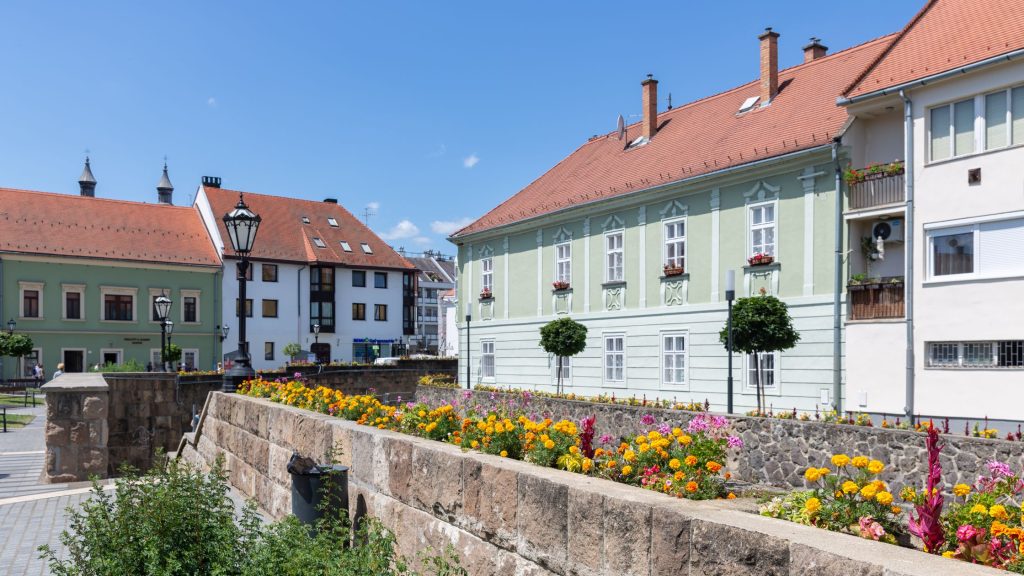Hungary’s Identity Protection Property Law, passed in April 2025, has introduced a dramatic shift in how – and whether – people can buy property or settle in certain Hungarian towns. In this Part Three of my series, we move beyond the village gates and dig into the law’s constitutional roots, legal implications, and potential EU backlash.
In Part One, we introduced the new law that allows local municipalities to say “no thanks” to newcomers. Part Two explained how these powers might actually be used on the ground. But today? We’re going full policy wonk — with a glass of fröccs in hand — to explore how this law holds up constitutionally, and whether Brussels is likely to come knocking.
Spoiler: this isn’t just about charming villages and property rights. It’s about rewriting who gets to belong — and who doesn’t.
A Constitutional Plot Twist
If you missed the fine print in April 2025, here’s the big reveal: Hungary’s government didn’t just pass a property law — it rewrote the Constitution. Specifically, Article XXVII, which used to say that “everyone legally residing in Hungary has the right to freedom of movement and to choose their place of residence.”
Now? There’s a new qualifier:
“The exercising of the right to choose one’s place of residence shall not infringe upon a local community’s fundamental right to its identity.”
That’s right. They added a “community identity clause” to the country’s highest legal document — and in the same constitutional package that defined gender as binary and strengthened so-called child protection rules. The ruling party, Fidesz, pushed it through on 14 April 2025 with its usual two-thirds parliamentary majority.
Government spokesperson Zoltán Kovács framed it as “future-proofing the nation,” insisting it defends national values and allows “local self-defence” against overdevelopment.
But not everyone’s buying it.
Rights Advocates Call Foul
Legal experts and civil liberties organisations say this move threatens basic freedoms. Hungary’s own Civil Liberties Union (TASZ) argued the amendment undermines the spirit — and possibly the letter — of free movement. Critics question whether a vaguely defined “community identity” can be considered a fundamental right at all.
And it gets thornier: this isn’t just about theoretical rights. It gives municipalities the legal power to curtail your right to move house — or buy a property — based on whether locals think you “fit in.”
According to Human Rights Watch, the law fits into a broader trend of undermining rights in Hungary. Their April 2025 statement condemned the whole amendment package as “yet another escalation,” warning that the government’s sweeping changes violate EU norms and were passed without meaningful public debate.
What About the EU?
Now, here’s where it gets dicey for Hungary.
Under EU law, citizens of any member state — whether German, Italian, or Hungarian — have the right to live and work anywhere in the EU, including Hungary. That also includes the right to buy property, unless special exemptions are in place.
Hungary’s Identity Protection Property Law doesn’t target foreigners. It restricts all “non-locals” — meaning even a Hungarian from another town could be refused. But in practice, most “non-locals” will be outsiders, including EU citizens.
So what happens if a town council denies a German couple the right to register a lakeside house as their residence because “the community is full”?
We’re now in uncharted legal territory.
Some observers compare it to housing protections in parts of Denmark or Alpine villages in Austria, where locals get priority. But Hungary’s law is broader and more constitutional — and no infringement proceedings have been announced yet. Still, the European Commission is likely watching, and a test case could easily land on Brussels’ desk.
The key question: Can Hungary prove this law is applied fairly, proportionately, and without discrimination?
Anti-Discrimination Safeguards (Sort Of)
To be fair, the government saw the legal storm coming — and tried to pre-empt it.
The legislation includes language stating that it cannot be used to discriminate against ethnic, religious, or protected groups. Specific carveouts (called mentességi jogok) say that:
-
Anyone born in a settlement must be allowed to return.
-
Public servants (e.g. teachers, doctors, police) must be accepted.
-
Towns cannot ban based on ethnicity (i.e. it can’t legally be used against Roma or others).
It even allows preferential treatment for groups a town needs — like young families or skilled tradespeople — as long as the criteria are neutrally applied.
Sounds great in theory. But rights advocates argue that in practice, requirements like “local cultural understanding” or “commitment to community life” could quietly exclude non-Hungarian speakers, foreigners, or lower-income buyers who can’t commit to expensive build conditions.
So yes — the law forbids overt discrimination. But the devil’s in the village-level details.
Can the Identity Protection Property Law Be Challenged?
Short answer? Not easily in Hungary.
-
It’s in the constitution.
-
It’s a cardinal law, requiring a two-thirds majority to change.
-
The Constitutional Court is stacked with Fidesz appointees.
Legal experts believe the biggest risk for the government isn’t internal — it’s external. If EU citizens begin being denied housing or residency due to these new rules, Hungary could face infringement proceedings from the European Commission. That’s the EU’s version of a legal red card.
But until someone challenges the law — and it winds its way through courts — the government can safely say: “It’s legal, because we made it so.”

A peaceful town in Hungary — but new local laws could soon decide who gets to move in.
Real Local Power or Just Political Posturing?
One fascinating irony? This law is being framed as a triumph of local autonomy — a way for small communities to protect themselves.
But let’s not forget: for over a decade, the same government has centralised control, cutting local budgets, taking over schools, and stripping municipalities of real power. A commentary in HVG called the law “hypocritical,” noting that letting towns say “no” is a symbolic win — but doesn’t solve any structural problems.
As one rural mayor (quoted anonymously) put it:
“We can say no to people now. But we still don’t have money for roads, doctors, or schools.”
Final Thoughts: This Is Just the Legal Beginning
By embedding Hungary’s Identity Protection Property Law into its constitution, the government has made it difficult to challenge domestically. But internationally? The legal questions are only just beginning.
As we approach the law’s implementation in July 2025, local councils may soon hold real power to shape who joins their communities. Whether they wield that power fairly and transparently — or find themselves facing legal pushback — remains to be seen.
The good news? Nothing is inevitable. Not every town will adopt the law. And those that do will need to define their rules in detail. There’s still time to influence policy, prepare strategically, and understand your options — especially if you’re thinking about buying, building, or settling in Hungary.
So stay informed, stay engaged, and don’t panic. This story is still being written — and I’ll be here, decoding each twist as it comes.
Coming Up Next…
In Part Four, I’ll explore how this law is being implemented locally — who’s opting in, what restrictions look like on paper, and what buyers are being asked to agree to. (Let’s just say… it’s not a simple sale.)
Until then:
-
Revisit Part One
-
Read Part Two
-
Stay informed with my ebook: HOW TO HUNGARY – Budapest & Beyond
Because knowing the law is one thing. Understanding how it might shape your future home? That’s where this series comes in.
Articles That Helped Me Decode This
Recent news reports and analyses from Hungarian outlets like Telex telex.hu, HVG hvg.hu, hvg.hu, Portfolio.hu portfolio.hu, portfolio.hu, 24.hu 24.hu, 24.hu, as well as English-language coverage by Reuters reuters.com and government communications budapesttimes.hu, have informed the above overview.
These include legal commentary on the constitutional amendment telex.hu, economic data on property price trendsdailynewshungary.com, and reactions from local officials and citizens as reported in various media sonline.hu and reddit.com. All information is based on sources published in 2025 after the law’s passage, with translations provided for Hungarian-language references.

Anikó Woods is a Canadian-Hungarian writer, technology specialist, and digital strategist who swapped Toronto traffic for Hungarian bureaucracy. She’s the creator of HOW TO HUNGARY: Budapest & Beyond. Since moving to Hungary in 2017, she’s been deep in the paperwork trenches – fact-checking, interviewing experts, and helping others make sense of the madness. Her writing turns chaos into clarity, with a few laughs (and wine recommendations) along the way.

0 Comments